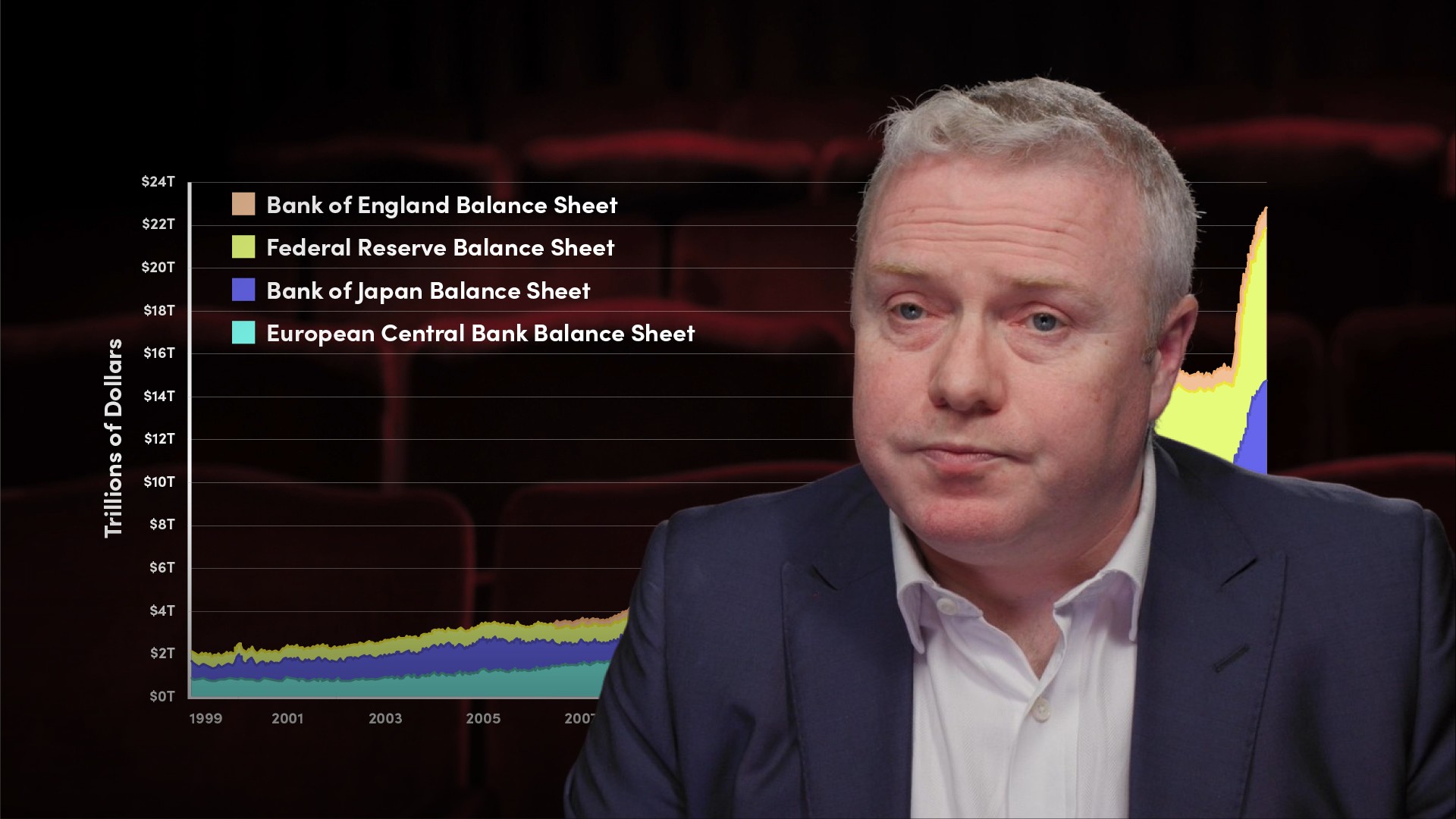
European Fiscal and Monetary Policy Response to COVID-19

Trevor Pugh
20 years: Trading & hedge funds
The Covid-19 pandemic changed the situation for many countries and showed what could be achieved when fiscal and monetary policy linked to deal with the crisis. Fiscal policy became very expansionary, backed by central banks engaging in QE and lowering interest rates. The EU was no exception, perhaps realising it had no choice. This video by Trevor provides the monetary and fiscal responses to Covid.
The Covid-19 pandemic changed the situation for many countries and showed what could be achieved when fiscal and monetary policy linked to deal with the crisis. Fiscal policy became very expansionary, backed by central banks engaging in QE and lowering interest rates. The EU was no exception, perhaps realising it had no choice. This video by Trevor provides the monetary and fiscal responses to Covid.
Subscribe to watch
Access this and all of the content on our platform by signing up for a 7-day free trial.

European Fiscal and Monetary Policy Response to COVID-19
10 mins 15 secs
In our earlier videos we looked at European Monetary and Fiscal Policy and how fiscal policy was extremely constrained in the Eurozone, in particular due to the Stability and Growth Pact and the limits this put on government deficits. Monetary policy on the other hand has been very generous, with rates below zero in the Eurozone for many years and Quantitative Easing or QE now exceeding 2 trillion Euro. The outbreak of Covid-19 changed this, in particular the fiscal policy approach and in this video we look at how the Eurozone responded to the crisis.
Key learning objectives:
Outline the fiscal policy response of the EU to Covid
Outline the monetary policy response
Understand the outlook for the next few years
Subscribe to watch
Access this and all of the content on our platform by signing up for a 7-day free trial.
What was the fiscal policy response of the EU to Covid?
The fiscal policy response to Covid was considerable, as it needed to be given that governments were ordering the closure of a huge number of businesses, whether healthy or not. The IMF’s Fiscal Monitor showed that countries such as France, Germany and Italy added from 5% to 9% of GDP in fiscal spending, in which we also include foregone revenue such as VAT payments. They also boosted the economy with lending and liquidity support using equity injections and loans for example. At the EU level, a further 3.8% of GDP in additional spending had been committed by September 2020 by way of a EUR 750bn recovery fund composed of EUR 390bn in grants and EUR 360bn in loans. Finally, the European Commission agreed to issue EUR 100bn in bonds under the SURE Programme, Support to mitigate Unemployment Risk in an Emergency.
What was the monetary policy response?
The monetary policy response of the EU to Covid was also sizeable. The ECB announced a QE package of EUR 750bn on the 18th of March, 2020. The Pandemic Emergency Purchase Programme (PEPP) would include all asset categories eligible under the existing Asset Purchase Programme (APP). There was little room for maneuver on interest rates however, as rates had already reached -0.5% in September 2019, and it was arguable that further cuts would have limited impact. On the liquidity side, the ECB announced on the 10th of December that it was providing four additional Pandemic Emergency Long Term Repo Operations (or PELTROs) to provide liquidity support for the EU banking system.
What is the outlook for the next few years?
In normal times the Stability and Growth pact would have prevented Member State governments from running such large budget deficits but there have been frequent exceptions to this agreement. The EU commission ruled on the 20th of March, 2020, that the general escape clause of the EU fiscal framework should be used and the EU Council approved 3 days later. This allowed the required increases in spending. Nonetheless, in the past, the EU has reverted to type very quickly; for example, raising rates in 2011 when Greece was on the verge of bankruptcy. The positive news this time is that the current package is set to last over the course of the current Multiannual Financial Framework until 2027. It is not entirely clear if it will be enough. The additional EU spend came to 750bn over seven years, well under 1% of GDP per year. The key will be the ability of the member states themselves to keep up spending levels should it be needed.
Subscribe to watch
Access this and all of the content on our platform by signing up for a 7-day free trial.

Trevor Pugh
There are no available videos from "Trevor Pugh"






















